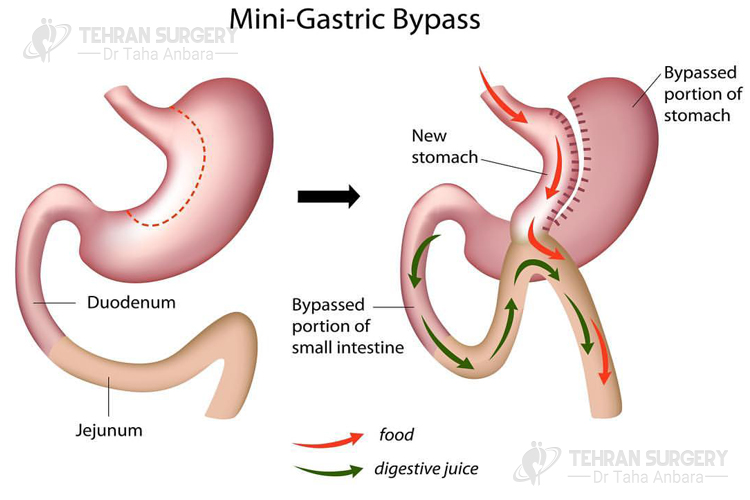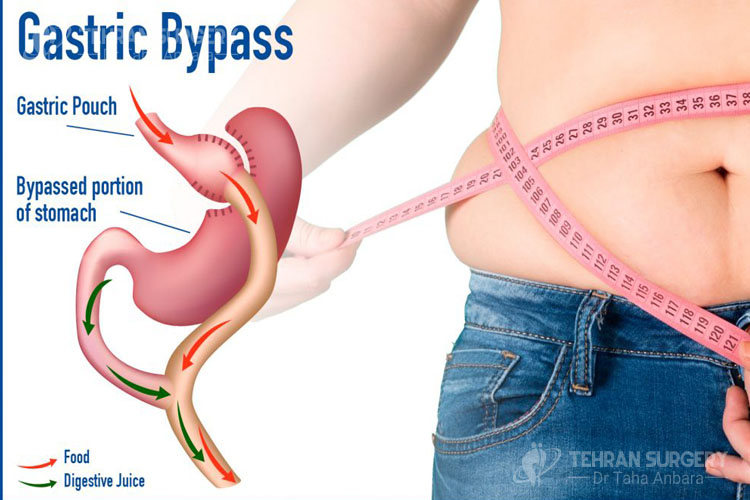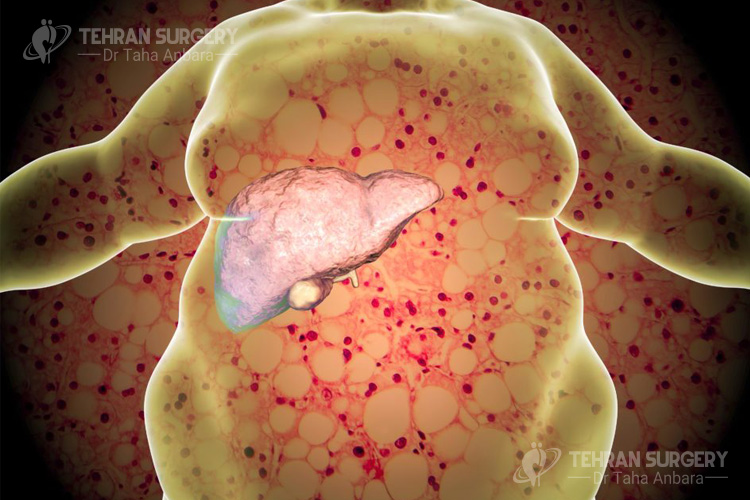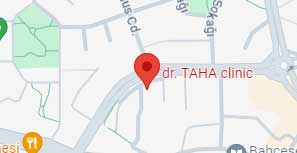
Mini bypass
It is a minimally invasive surgery, a combination of gastric sleeve surgery and gastric bypass surgery. Mini bypass surgery is a safe, simple and effective alternative for Roux-en-Y technique. This operation reduces the size of your stomach and make you feel full sooner as well as shorten your intestine that absorbs nutrients and cause your body to absorb fewer minerals and calories. Mini gastric bypass not only can be considered as a primary surgery but also is a proper option for patients who have done unsuccessful sleeve or bypass surgery or those who have had band-related complications and need to the revision surgery. Surprisingly, according to some studies, patients who have done mini bypass lost more weight compared to a sleeve or bypass patients. More addition they have a similar rate of improvement for type 2 diabetes, hypertension as well as functional improvement.
Mini gastric bypass procedure

This operation is a combination of gastric sleeve surgery and bypass surgery. The top of the stomach divides to a thin tube (30ml to 50 ml in size) by the staple. This thin tube becomes the new and smaller stomach which is completely separate to the rest of the stomach. Then this new stomach is sewn to a loop of the small intestine, bypassing the first part of the intestine called the duodenum and about 150-200cm of the bowel. Although the rest of the stomach and upper part of the small intestine are still remaining in the body but will not be longer used for food digestion.
Who is the right candidate for mini bypass surgery?
Mini gastric bypass surgery is an ideal option for people with mild, moderate and severe obesity especially for patients with Gastro-Esophageal Reflux or Hiatal Hernia as well as patients who suffer from type 2 diabetes mellitus. Although it can be undertaken as the primary surgery, it is also preferred operation for patients who need revision surgery due to gastroesophageal Reflux or weight gain.
Pros of mini gastric bypass
This operation same as gastric bypass surgery has many benefits for patients including:
- Increase the quality of life
- Improve cardiovascular disease
- Treat diabetes, high blood pressure, sleep apnea
- Resolve Gastroesophageal Reflux Disease (GERD)
- Remove obesity-related infertility
Cons of mini gastric bypass
This operation is associated with some related risks and complications, the same as any other surgical operation such as:
- Infection
- Bleeding
- Anaesthesia complications
- Diarrhea and constipation
- Dumping syndrome
- Intolerance to certain foods, beverages, and drug
- Nausea and vomiting
- Malnutrition
- Hair loss
Post-op surgery diet

After the mini bypass surgery, your food diet and lifestyle will change. Since it is a malabsorptive procedure so there is a risk of malnutrition. Your doctor will prescribe you vitamins and supplements to decrease the risk of vitamin deficiency. Generally, you should start eating following the surgery from clear liquids to solid foods. You need to drink a lot of sugar-free liquids but keep it in your mind never drink around meals. If you feel hungry through the day you can just eat a minimal snack. Following the mini bypass surgery, you should avoid alcohol and trigger foods.
General speaking, mini bypass surgery is an effective and low-risk and low-failure procedure. You need to stay at the hospital after the surgery for 1-2 days and it is supposed you have fully recovered in 2 to 3 weeks’ post-op the surgery. You can’t go to work during this time and you should stay at home. This surgery helps you to lose weight by reducing the feeling of hunger and making an earlier feeling of fullness when eating as well as decreasing the number of calories you absorb from your food. Overall, gastric bypass improves all the obesity-related problems and increases the quality of your life.









